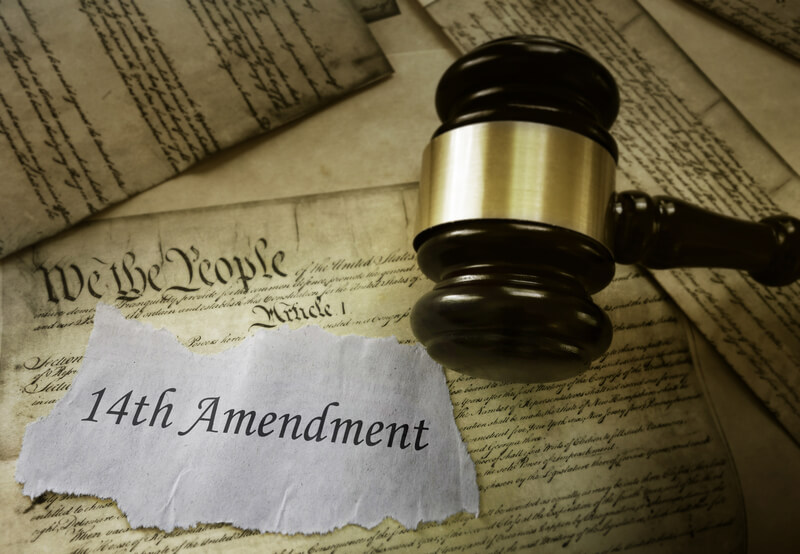The 14th Amendment is one of the most significant amendments in American history. It grants citizenship to all persons born or naturalized in the United States and guarantees equal treatment under the law. It has also been the basis for many landmark Supreme Court cases that have shaped American society and politics. So, what do you need to know about it? Lets explore 3 fourteenth amendment cases, and why they matter.
3 Fourteenth Amendment Cases and Why They Matter
In this article we will explore arguably the three most notable 14th Amendment cases in American history, and expand on why they matter. We can do this by providing historical context and legal arguments, and examining their social impact. Understanding their relevance to today could show you why a civil rights attorney is important and explain what they can do. Or, it could inspire you to take action in your community or seek to protect your own rights!
Brown v. Board of Education (1954)
Brown v. Board of Education involved a challenge to racial segregation in public schools. The Supreme Court held that segregation was inherently unequal and violated the 14th Amendment. This is probably one of the, if not the most notable case in Supreme Court History. This makes it the leading example of our 3 fourteenth amendment cases and why they matter article.
The legacy of Brown v. Board of Education continues to impact our daily lives. The decision also paved the way for the Civil Rights Act of 1964, which outlawed segregation in all public places. As a result, discrimination based on race, color, religion, sex, or national origin is illegal.
Moreover, it inspired other social movements. The LGBTQ+ rights movement continues to battle for greater equality under the law.
Despite progress, racial segregation and inequality remain persistent problems. Schools in many parts of the country are still highly segregated. Students of color often receive lower-quality education and fewer opportunities than their white peers. But Brown v. Board of Education still serves as a reminder of the importance of fighting for equal rights.
Recently, there have been efforts to roll back some of these advancements. For example, some states have enacted laws that make it more difficult for people of color to vote. In this context, the legacy of Brown v. Board of Education is more important than ever.
Roe v. Wade (1973)
Roe v. Wade established a woman’s legal right to an abortion under the 14th Amendment’s Due Process Clause. It was doctrine that stood for nearly 50 years before it was recently overturned in 2022. The initial decision disrupted and ended many state laws that banned or severely restricted access to abortion. As a result, abortion remains one of the most controversial and divisive issues in American politics. Regardless, it was a milestone decision that defined rights and women’s health in the United States.
The 2022 Overturning Roe v. Wade has had significant effects. Currently, states can regulate or ban abortion as they see fit. The result is an ever-changing patchwork of laws across the country. Some states have banned abortion outright, and others allow it with various restrictions.
The effects are most acute among women with low incomes, minorities, and those who live in rural areas. These groups already faced significant barriers to accessing reproductive healthcare. But now, many have no choice but to seek unsafe abortions or carry unwanted pregnancies.
Roe v. Wade is also a reminder of the deep political and cultural divides that continue to shape American society. The issue of abortion remains highly politicized, and it remains a lightning rod for fierce debates.
Obergefell v. Hodges (2015)
Obergefell v. Hodges legalized same-sex marriage nationwide in the United States. The case overturned state laws that banned same-sex marriage and made it mandatory to recognize couples in all 50 states.
Since Obergefell v. Hodges, LGBTQ+ people have gained greater legal protections and recognition. They now have the right to adopt children, access healthcare, and serve openly in the military. The decision has also helped to break down cultural barriers and stigmas in American society.
Obergefell v. Hodges also highlights broader debates about the role of the Supreme Court in shaping American society. The decision was highly controversial at the time. Many conservative and religious groups opposed it on moral and religious grounds. The decision has also received criticism from some as an example of judicial activism. Regardless, others view it as necessary to protect the rights and dignity of marginalized groups.
Obergefell v. Hodges remains a reminder of ongoing challenges and inequalities in the United States. Despite legal protections, many LGBTQ+ people still face discrimination and harassment.
Talk to an Attorney About Your 14th Amendment Rights and Why They Matter
As we continue to face new challenges and struggles, it is vital to remember the lessons of these cases. If there is one thing these landmark cases teach, it is that vigilance is necessary to preserve our rights. From the controversy of protests and conflict with police, to free speech, to civil rights: it’s all worth protecting.
At the end of the day, hopefully you take some knowledge away from discovering these 3 fourteenth amendment cases and why they matter.
If you believe someone violated your 14th Amendment rights, we encourage you to contact an attorney. A qualified attorney can help you understand your options and provide guidance and support.
Complete our quick form or call (866) 345-6784 today!

